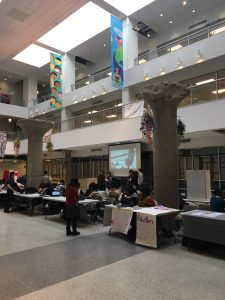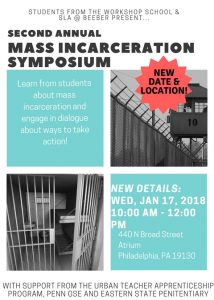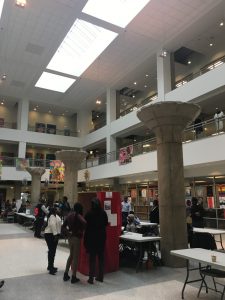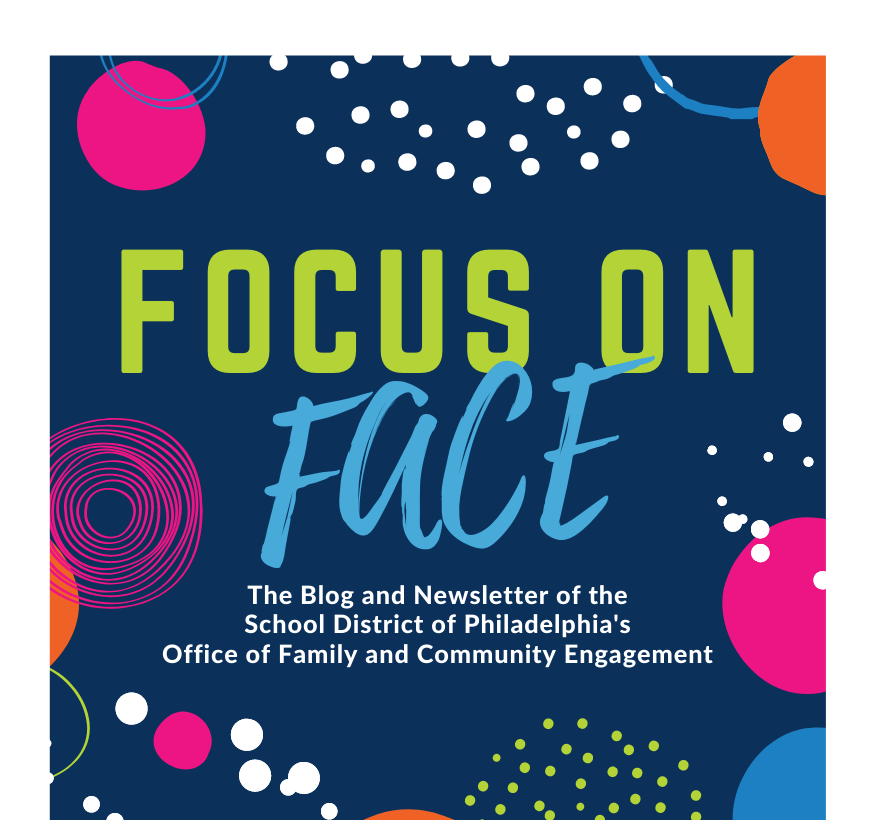
Students present their research.
The United States prison system, made up of county jails, state and federal prisons, and immigration detention centers, houses over 2 million people, more of its population than any other country in the world. This number has skyrocketed since the early 1970s, with changes in federal and state laws, prison sentencing, and law enforcement. Many books and articles have been written about this issue with varying levels of criticism of the criminal justice system and responses.
On January 17, students from The Workshop School and Science Leadership Academy at Beeber gathered at the District’s Central Office to present their research and perspectives on the American prison system as well as encourage dialogue on this issue at their second annual Mass Incarceration Symposium.
The Workshop School and SLA at Beeber, both a part of the District’s Innovation Network, are project based learning schools. Classes function a bit differently at project based learning schools: rather than spending an hour in each subject every day, students spend a large part of their day with teachers who work with students on a variety of interdisciplinary projects that connect real world problems to the school work they do.
This particular project on mass incarceration was inspired by the students’ trip to Eastern State Penitentiary (ESP). The historic Philadelphia landmark, no longer a prison but a stabilized ruin historic site, offers free tours to all Philadelphia students, all of which are dialogue based and connect the history of Eastern State with the issues occurring in prisons now.
When advisors Rebecca Coven (from the Workshop School) and James Elish (from SLA at Beeber) took their students to Eastern State on a field trip, they were inspired by the information and their students’ reaction to the tour. In particular, the students were interested in the exhibit Prisons Today: Questions in the Age of Mass Incarceration, which discusses the impact of prisons on the economy, families, individuals in prison, and even students in schools.

Samantha Hunter, Education Specialist at ESP, was one of the guides who gave the still-developing school tour to the groups when they visited. She says that ESP’s “role in the symposium was minimal but meaningful.” The students and teachers really took the content and ran with it, the outcome being a multi-week interdisciplinary project with Ms. Coven’s tenth grade students and Mr. Elish’s twelfth grade Political Economics students.
Students not only examined the causes and effects of mass incarceration, but offered possible approaches to solutions.
While many students may be familiar with the large rate of people in prison, the term “mass incarceration” was not one they were necessarily familiar with. Alejandro Martinez, a tenth grader at The Workshop School, says the project gave him “a greater view on our legal system and how it sometimes works, and how a good chunk of the time fails the citizens of America.”
Some students speak very passionately about this topic because of the effect it has had on their communities or because they are interested in social justice and urban affairs. Others, like student Salena Robinson, another tenth grader at The Workshop School, prefer different subjects in school, but appreciate how this issue interacts with those subjects. As an artist, Ms. Robinson believes the subject of incarceration “can inform art in the way that people feel inside of prisons and outside of prisons, that even the unfairness could influence art in certain ways.”

Some students had performance art pieces and interactive activities.
Ms. Robinson and her teammates created an interactive video and activities about specific issues within the criminal justice system. Other students chose to design performance pieces or presentations, and others created infographics and reports on topics such as the War on Drugs and how incarceration is more likely to affect black men than any other demographic group in the country.
Mr. Elish explains, however, that he doesn’t look for students to disclose how this topic affects their lives in class.
“If a student comes in with an experience that they have within their family, that’s wonderful because it makes the subject real to the entire class and it brings that sense of community conversation home in a way that reading an article or statistics does not,” he says. “So I would say the students bring that in and I will moderate the discussion and support it when they do, but I’m not asking for it.”
When asked why this isn’t covered in more high school classes, Ms. Coven argues it’s about fitting it into the curriculum but also the difficult nature of the topic. “This is something that deeply affects a lot of students in Philadelphia,” Ms. Coven explains, “so we should talk about it and give [students] a forum to discuss it, but also have them understand the structure and the institution of our criminal justice system and what needs to be changed.”
Ms. Coven and Mr. Elish are clearly passionately about this topic, the project, and their student. The two seem set on continuing this project next year, since politics, laws, statistics, and ideas change every day but the topic of mass incarceration will likely still be relevant.

